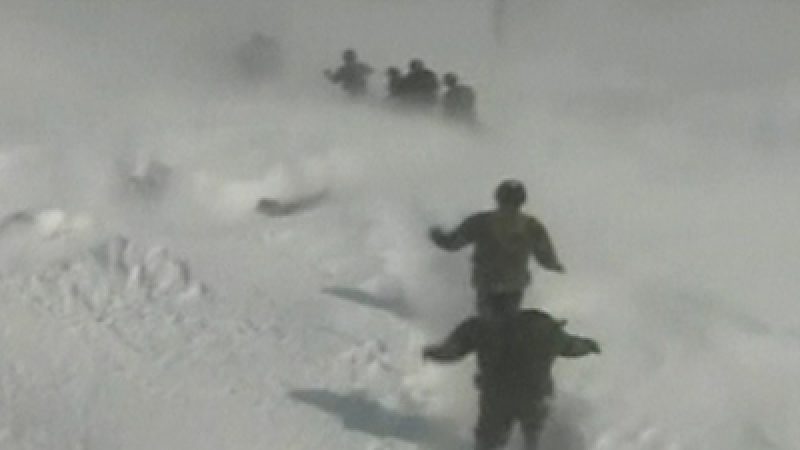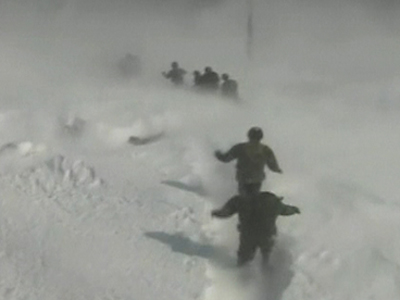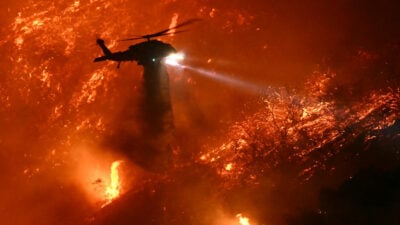
South Korea Mobilizes Army Rescue Ops After Record Snowfall

The biggest snowfall in a century buried cities in the eastern coastal part of South Korea and prompted rescue operations involving some 12,000 soldiers, as the coldest winter in years grips the peninsula.
Hundreds of motorists were stranded and dozens of buildings collapsed after nearly three-and-a-half feet of snow fell over some parts of the region this weekend.
The weather bureau forecasts more heavy snow for on Monday.
Local media said on Saturday that South Korean President Lee Myung-bak ordered the military to transport emergency supplies, including food, to trapped residents and carry out rescue operations.
On Sunday, a military unit mobilized a helicopter to deliver food to an isolated village and to remove snow around the houses.
[Corporal Sohn Dae-ho, South Korean Army]:
„We are here to help people who have been trapped by snow.“
One resident, Park Chae-ran, said she had never seen such a heavy snowfall in her 83 years.
[Park Chae-ran, Resident]:
„I am 83 years old. It’s the heaviest snow in my life. I am really grateful for the soldiers‘ help.“
On Saturday, another military unit was deployed to help drivers and passengers who had been stuck on a highway for about 20 hours.
Media reports say 52 domestic flights were cancelled due to the heavy snow and four schools in the east coastal region would be closed.
 Foto: NTDTV
Foto: NTDTV



























vielen Dank, dass Sie unseren Kommentar-Bereich nutzen.
Bitte verzichten Sie auf Unterstellungen, Schimpfworte, aggressive Formulierungen und Werbe-Links. Solche Kommentare werden wir nicht veröffentlichen. Dies umfasst ebenso abschweifende Kommentare, die keinen konkreten Bezug zum jeweiligen Artikel haben. Viele Kommentare waren bisher schon anregend und auf die Themen bezogen. Wir bitten Sie um eine Qualität, die den Artikeln entspricht, so haben wir alle etwas davon.
Da wir die Verantwortung für jeden veröffentlichten Kommentar tragen, geben wir Kommentare erst nach einer Prüfung frei. Je nach Aufkommen kann es deswegen zu zeitlichen Verzögerungen kommen.
Ihre Epoch Times - Redaktion